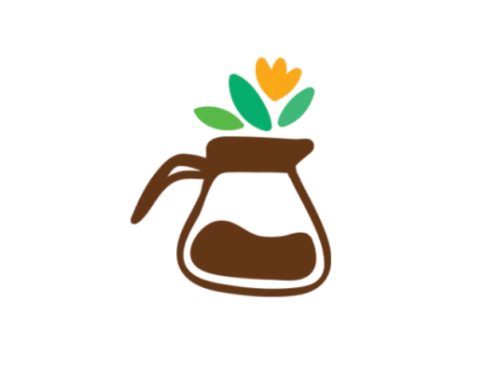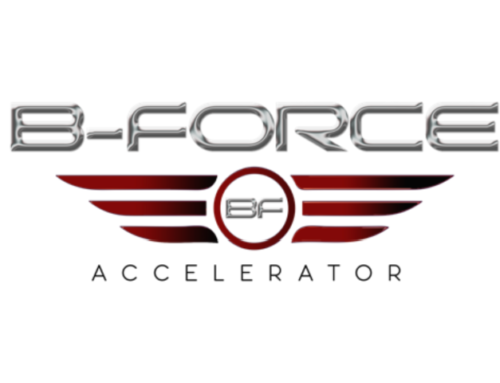Meet Richmond’s 2020 Inno on Fire
RVA’s best startups, innovators and stakeholders of 2020 By Elise Franco – June 11, 2020
While we’re only halfway through 2020, the tech and innovation ecosystem has provided no shortage of startups and entrepreneurs deserving of Richmond Inno’s highest accolade.
Covid-19 forced a large number of founders and investors to carefully pivot how they operate and spend their dollars. Because of this, the 2020 Richmond Inno on Fire winners may look a bit different than in years’ past.
The pandemic has affected the startup community in ways no one could have imagined, but it’s also caused entrepreneurs to think beyond their mission inspiring new solutions, pivots and initiatives aimed at combating this pandemic. We’ve also introduced a new category this year called Crisis Innovators, which highlights organizations that are stepping up in the face of Covid-19.
This year’s Inno on Fire event will be virtual, and registration is open now. We can’t wait to see you there!
Inno on Fire winners were sourced by both internal and external nominations and selected by the Richmond Inno editorial team.
Here they are:
Tech and Software
RoundlyX — Since acquiring D.C.-based crypto company Vite.Money in 2019, RoundlyX has increased user accounts and transaction volume a dozen times over. Formerly Coin Savage, the app takes users spare change and invests it as cryptocurrency. Just last month, the startup received an investment from CIP GAP Funds, which co-founders Andrew Elliott and Will Trible said they will use to scale the platform.
STAC — After a heavy five-month-long social media push, online recruiting tool STAC launched in early May with $595,000 in angel investments. The tool connects high school athletes with college coaches and is described by co-founder and CEO Robert de Wolff as a “LinkedIn for athletic recruiting.”
Naborforce — Rideshare-type platform Naborforce, used to connect seniors with “Nabors” who meet up for companionship, errands and housework, started the year strong with month-over-month growth in the double digits. In March, Naborforce was voted runner-up in this year’s Richmond Inno Tech Madness competition, beating out 14 other tech startups. Shortly after, the company was forced to pivot from in-person contact with seniors because of Covid-19. Clients are now connecting over the phone for a chat, and Nabors continue to help with essentials like online grocery, prescription and restaurant ordering, or things as simple as just dropping off a book or puzzle on a client’s porch.
GOGO Band — Technology-based bedwetting solution GOGO Band has kept the ball rolling since launching its product in mid-2019 by landing a major warehouse space in Hanover County. The startup spent several years researching and testing the wearable device that can predict a bedwetting occurrence before it happens. GOGO Band raised a round of equity funding in May that was added to a raise filed last April. The amended round totaled $550,000.
Goodfynd — Anyone who’s ever craved their favorite food truck but had no idea where to find it will certainly take note of Goodfynd. The startup’s app and website allows users to search for and order from food trucks and “roaming businesses” near them. Goodfynd launched in 2018 and was named this year’s Dominion Energy Innovation Center’s Pitch Competition Winner in the general category.
Tablee — Tablee, maker of devices for restaurants that allow tables to summon their server with the push of a button, is designed to enhance the diner experience and take pressure off the service staff. The company had its first outside funding round last summer and raised $500,000. Another funding round for $125,000 was filed in February. Tablee was accepted into Chicago’s Food Foundry Accelerator earlier this year.
BioMech — BioMech spent the beginning months of 2020 working on a $4 million capital raise as part of a $10 million round. The startup develops real-time motion analytics for the healthcare, wellness and education sectors.
Warehowz — Warehowz, an on-demand warehousing software startup, was selected out of more than 1,000 applicants as one of 25 startups to pitch during the final round of Plug and Play’s accelerator. Just a few weeks ago, the startup completed a $1.3 million capital raise aimed at upgrading its website and expanding its workforce.
OccassionGenius — Event discovery startup OccassionGenius was also chosen out of more than 1,000 startups to pitch at Plug and Play’s accelerator. The startup closed a $2.15 million investment round last spring, which was used to expand services and operations.
The Shed — Rental marketplace startup The Shed raised an initial funding round of $1.25 million and got to work on the next round in the spring. Over the last three weeks, however, The Shed has worked hard to help businesses in Richmond reopen. The company has provided restaurants and gyms the things they need—like tents, equipment and furniture—to get up and running.
Education
Trilogy Mentors — Named a Richmond Inno Startup to Watch earlier this year, Trilogy Mentors has been connecting students with personal academic support since 2015 and is a turn-key solution for tutoring companies and private schools wanting to launch their own online tutoring programs. The startup secured $835,000 in pre-seeding funding in September led by Rosetta Stone co-founder Michael Silverman and the Maclaurin Group.
Lighthouse Labs — Lighthouse Labs has ridden its momentum as a nationally-ranked startup accelerator over the past three years into 2020. The seed-stage accelerator is currently taking applications for its fall cohort, which will be the only health-focused startup accelerator in the state. Lighthouse Labs’ first-ever Startup Sprint, a week-long program for 60 early-stage startups, is slated to kick off on June 15.
EdConnective — Earlier this year, Richmond’s Trolley Ventures announced an investment into the edtech startup, though the funding amount was undisclosed. EdConnective works to ensure student success by using online teacher training. The startup takes video of classroom instruction and uses that video to pair teachers and coaches for online feedback sessions. It’s currently working on more than 3,000 feedback sessions in nine states.
Light the Music — Edtech platform Light the Music has spent the majority of 2020 expanding its products and services into the national market, thanks to $250,000 in funding. The company’s music education program has become its core offering to schools — engaging students from preschool through high school.
Virginia Commonwealth University — VCU’s biggest tech news of the year was the launch of its Center for Innovation in STEM Education. The move is meant to improve and expand the reach of STEM education to students from diverse and low-income backgrounds. Through the center, VCU has been able to contribute to the battle against Covid-19 through things like research grant funding, clinical drug trials and mask creation.
Blue Ocean Brain — Blue Ocean Brain was named one of Leadership Training’s Top Companies to Watch in 2020. The microlearning startup gives companies the tools to build and nurture leaders from within. Blue Ocean Brain is well-known for its Diversity and Inclusion training, which teaches cultural growth and change in a long-term, sustainable way.
Crisis Innovators
Phlow Corp. — With what’s possibly Richmond’s biggest funding news of the year so far, pharmaceutical manufacturing company Phlow Corp. received a $354 million federal contract to make the active ingredients for more than a dozen medicines used to treat patients with Covid-19. The company was founded on the basis of manufacturing high-quality, essential generic drugs at a low cost, helping to boost the United States’ drug reserve.
Roundtrip — As Covid-19 forced postponement of many non-essential healthcare appointments, Roundtrip, a software platform for organizing medical transport, shifted from patient transport to transporting healthcare workers instead, enabling them to avoid public transportation and additional exposure to the virus. Most recently, Roundtrip was awarded a $252,000 Small Business Innovation Research grant from the National Institutes of Health. The grant will partner Roundtrip with Lyft and the University of Pennsylvania to look at the impact of transportation on Opioid Use Disorder treatment.
Grenova — Since last year’s Richmond on Fire awards, Grenova, manufacturer technology that washes and sterilizes pipette tips used by labs to perform critical testing, has doubled in size. A sharp increase in the number of single-use tips being used for Covid-19 testing would put healthcare systems at risk of shortage without Grenova’s tech that allows labs to safely wash and reuse the pipette tips.
goHappy — goHappy’s pivot last October from a peer-to-peer communication channel to a tool to help businesses communicate with employees became even more important as the spread of Covid-19 closed offices across the country. The platform is now solely focused on helping these organizations more efficiently communicate with their hourly workforce. Company founder Shawn Boyer estimated between 20,000 and 30,000 employees now use the platform after launching sales to organizations in early February.
Cupron, Inc. — Cupron’s latest round of funding, a $1.75 million capital raise earlier this year, was the first time since 2010 the startup has sought funding. The tech startup makes copper-based antimicrobial products and recently pivoted to masks infused with its tech to help fulfill a need as Covid-19 spreads.
Kamana Health — Kamama Health was founded as a way to connect traveling nurses and other healthcare professionals looking for work with providers. The platform also manages screening, staffing and the on-boarding process. As the need for health care workers increased due to Covid-19, however, the startup put out a call to nurses and allied health professionals across to help fill shortages. During the pandemic, Kamana gave staffing agencies access to its network without the usual usage fees.
Social Impact
Health Innovation Consortium — The Health Innovation Consortium, founded in 2019 and led by Virginia Commonwealth University, is a platform that helps support ideas and programming for early-stage health tech startups. In just one year, HIC has helped find solutions to a number of issues discovered within the health care system, including a pilot program created to decontaminate N95 masks for reuse. VCU Health and Activation Capital are founding partners.
Temperpack — Temperpack’s mission statement, “We protect products with packaging that protects the Earth,” sums up perfectly how the startup’s ClimaCell recyclable packaging aims to replace landfill-bound packaging materials that have become commonplace in a time when online shopping is more popular than ever. The company has raised more than $40 million since it was founded in 2015, and most recently secured $13 million in equity funding in December. Among the product’s users are international meal delivery company HelloFresh and produce delivery startup Misfit Markets.
Terravive — Terravive was one of only a handful of startups slated to present its product to a crowd of more than 1,000 people at Austin’s South by Southwest Festival before it was cancelled due to Covid-19. The company, which creates environmentally responsible, fully-biodegradable single-use products, also launched a new website in March that was to coincide with the presentation. The cancellation wasn’t a total wash, though, as founder Julianna Keeling said preparation for the event help her realized new opportunities for growth and a better strategy.
Totem — SaaS company Totem has continued its growth well into 2020. The startup received an initial angel investment to get its product off the ground, and closed on a pre-seed round of funding in February worth $550,000. Totem’s tech helps nonprofits all over the country through a subscription-based CRM platform that offers integrations and auxiliary software for functions that are crucial to a nonprofit’s operation.
Capital One Coders — The program gives students the opportunity to develop their own mobile app while using computational thinking, which is critical in software development. Lisa Collins, director of data engineer at Capital One, spoke recently about the program’s commitment to teaching a new generation of Black coders. To do this, Collins partnered with Blacks in Technology, a Capital One’s internal business resource group, and with their help, began to sponsor a 10-week program in conjunction with the Capital One Coders based out the Richmond Boys and Girls Club.
Lifestyle and Other
Nutriati — Named one of Richmond Inno’s Startups to Watch in 2020, Nutriati takes plant-based foods, mostly chickpeas, and turns them into items like flour, oil and its most popular product the Artesa Chickpea Protein powder. Last summer, the company raised $2.9 million in an ongoing funding round, which was capped in SEC filings at $12 million. To date, Nutrati has raised more than $26 million in venture capital.
O’My Dairy — Dairy-free gelato producer O’My Dairy closed a $750,000 capital raise in February that helped boost creation of the company’s new lower-sugar line. This line will allow O’My Diary to serve customers who are diabetic and pre-diabetic thanks to the use of allulose, a sugar substitute, instead of cane sugar.
Kim Baker Foods — The food-based company, located at HatchRVA, is expanding its product line this month. Kim Baker Foods Pro-Chi line’s current offerings include three lentil-based products meant to be used in cooking and as salad toppings. The new addition is intended to be more like a snack in cluster form with a tahini flavor.
GPB Scientific — Biotech startup GPB Scientific secured a $25.5 million capital raise earlier this year, which the company plans to use to continue development and commercialization of the Curate cell processing system.
Community Builder
Dominion Energy Innovation Center — The Dominion Energy Innovation Center started 2020 with a bang and hasn’t slowed down. In February DEIC, in partnership with Randolph-Macon College, hosted a pitch competition for emerging technology and sustainability-focused startups. They also announced a new energy-focused startup accelerator that kicks off this fall. The DEIC, created in 2009 in partnership with Activation Capital (which is a founding partner of Richmond Inno), aims to help startups with mentorship, resources and work space.
Startup Virginia — Startup Virginia is a long-standing incubator with a mission based on helping to sustain high-growth companies in Virginia. By launching programs like the Entrepreneur Certificate Course and SVA Builder Series, as well as its new Professionals in Transition live job board, Startup Virginia has been able to draw in, and retain, some of the highest quality talent the tech and startup ecosystem has to offer.
Center for Innovative Technology — The Center for Innovative Technology has been busy so far in 2020 using its CIT GAP Fund to invest in at least a dozen Virginia-based startups since January. CIT GAP Fund is a family of seed and early-stage investment funds for Virginia-based technology, life science and cleantech companies. CIT has also continued its commitment to the ecosystem by partnering with tech and startup resources across the state.
HatchRVA — Last month, HatchRVA launched an initiative to distribute healthy meals to community members who need them. The incubator, which assists in building the food and beverage startup ecosystem in Richmond, gives these startups the chance to scale their business by offering access to the Hatch kitchen, as well as mentors and incubator resources.
Rocket Factory — Rocket Factory launched earlier this year as a marketing service and research business for tech startups. Along with the firm, it offers a subscription-based advisory service for early startup companies called Launchpad. Earlier this week, Rocket Factory launched a major statewide campaign aimed at creating new energy and inspiration for Virginia’s small business community as it re-emerges from the statewide shutdown. The campaign calls for small businesses to share their operating challenges and culminates with a virtual event on June 26.
Inno on the Road
We added this category as a way highlight the wide breadth of startups in surrounding ecosystems that shined this year.
Herbfluence — Since its public launch in January, Virginia Beach-based Herbfluence has built a client base of more than 35 cannabis and CBD companies and a network of more than 200 influencers, who have a combined follower count of over 20 million. The company, founded in April 2019, is an online marketplace that connects cannabis and CBD brands with influencers who post content to promote the products. Founder Tyler Knight helped jumpstart the company with a personal seed investment of $250,000. That was followed by a $1 million Series A round earlier this year.
Ario — After a strong year in 2019, Norfolk-based Ario kept it momentum going by receiving the $1 million grand prize in Verizon’s “Build on 5G Challenge.” The startup prides itself on the productivity boost their augmented reality platform brings to industrial companies, focusing specifically on enhancing efficiency and ensuring safety.
SVT Robotics — The Norfolk robotics startup closed this month on its third investment round, worth $3.5 million. With a global list of clients, SVT has attracted the attention of investors including New Richmond Ventures and mega-VC Cowboy Ventures, a prominent Silicon Valley fund. SVT Robotics’ tech works by standardizing the language between robots and a company’s enterprise software system.
Locus Health — Charlottesville-based health tech startup Locus Health connects parents with their kids’ doctors to monitor vital signs following NICU stays. The startup was included in Inno’s list of Telehealth startups across our 14 markets to know during the pandemic. For its part in fighting Covid-19, Locus Health mailed Locus iPads to home quarantined pattens who tested positive or had symptoms of the virus.






